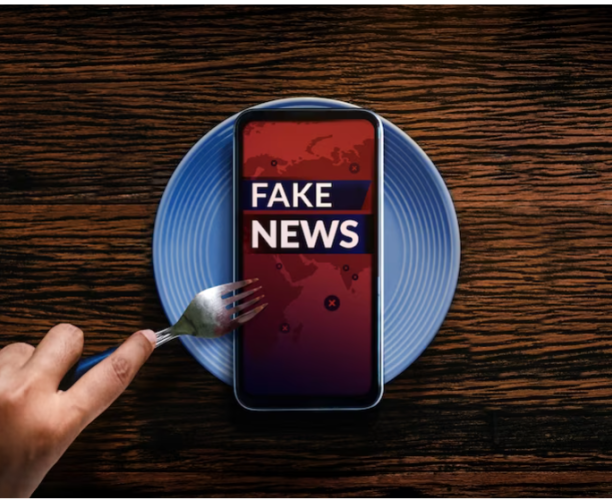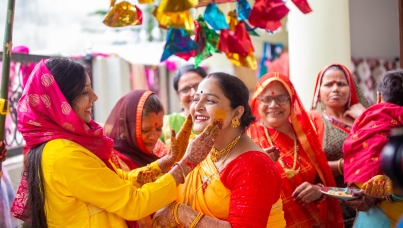

Social Media Feeds widest source of disinformation & fake news - UNESCO-Ipsos Survey
The UNESCO-Ipsos Survey on the impact of Online Disinformation and Hate Speech shows, disinformation and fake news and hate speeches are a reality in India with 64% blaming social media feeds as the biggest source of disinformation and fake news. Ironically, 1 in 2 urban Indians (56%) claimed to turn to social media feeds as their top choice for news and information.
UNESCO and Ipsos decided to conduct a global survey on the impact of online disinformation and hate speech in 16 Countries where general elections are to be held in 2024 and posed questions specific to this context. Do they feel disinformation has already had an impact on political life in their country and is there concern around disinformation impacting the next campaign?
Sources of disinformation and fake news. And sources accessed for news and information
Urban Indians believe social media feeds is the widest source of disinformation and fake news (64%), followed by large groups or communities or online messaging groups (42%), media websites/ media mobile apps (23%), television (17%), in-person/ online discussions with family members, friends or colleagues (17%), newspapers or news magazines (11%) and radio (4%).
Interestingly, inspite of being aware of the pitfalls of turning to social media feeds, as it is perceived to be the widest purveyor of disinformation and fake news, paradoxically, 1 in 2 urban Indians (56%) claimed to turn to social media feeds as top choice for news and information. Followed by television (42%), newspapers or news magazines (37%), media websites or media mobile apps (24%), large groups or communities on online messaging apps (17%), in-person or online discussions with family members, friends or colleagues (7%) and radio (6%).
Hate Speeches
At least 85% of urban Indians polled claimed to have come across often, online content that seemed like hate speech. Across all 16 markets, Indians came across hate speech the most, followed by citizens of Bangladesh (84%).
Hate speeches can be found on social networks, comment sections of articles, in instant messaging. And can target individuals or groups of people (ethnic, racial, religious minorities, LGBTQ+ and people with disabilities.
Biggest victims of hate speech on social media across 16 countries were LGBT+ people (33%), ethnic/ racial minorities (28%), women (18%), religious minorities (17%), the poorest members of society (17%), overweight persons (13%), people with mental health issues (12%) etc.
Trust and Safety Measures on Social Media during Elections?
Broad approval (among citizens across 16 markets) for governments and regulators requring social media platforms to put in place trust and safety measures during election campaigns, to safeguard the sanctity of elections. 93% of urban Indians polled endorse this view.
Summarizing on the findings of the survey, Amit Adarkar, CEO, Ipsos India said, “The UNESCO-Ipsos survey is pertinent as India is among the 16 markets that go into the General Elections in 2024. Social Media Feeds while being accessed for breaking news and for information, is perceived to be fraught with disinformation and fake news believe majority of urban Indians polled. There is a strong case for guardrails and govt and regulators need to ensure social media platforms implement trust and safety measures during the General Elections given the risk it poses for disinformation and fake news.”
“Social media is like a loose cannon, can cause immense damage to reputation and credibility especially during the Elections. All the hate spewed is also unfettered,” added Adarkar.
About UNESCO
UNESCO works to promote freedom of expression online at a time when the digital ecosystem offers new opportunities but also multiplies challenges for freedom of expression. In September 2022, UNESCO started a global multistakeholder consultation to develop guidelines for regulating digital platform to safeguard freedom of expression, access to information, and other human rights, while dealing with content that can be permissibly restricted under internal human rights law and standards. The Guidelines outline a set of duties, responsibilities and roles for states, digital platforms, intergovernmental organizations, civil society, media, academia, the technical community and other stakeholders to achieve this goal. Read more at www.unesco.org.
ABOUT IPSOS
Ipsos is the world’s third largest market research company, present in 90 markets and employing more than 18,000 people. Our passionately curious research professionals, analysts and scientists have built unique multi-specialist capabilities that provide true understanding and powerful insights into the actions, opinions and motivations of citizens, consumers, patients, customers or employees. We serve more than 5000 clients across the world with 75 business solutions. Founded in France in 1975, Ipsos is listed on the Euronext Paris since July 1st, 1999. The company is part of the SBF 120 and the Mid-60 index and is eligible for the Deferred Settlement Service (SRD). ISIN code FR0000073298, Reuters ISOS.PA, Bloomberg IPS:FP www.ipsos.com



